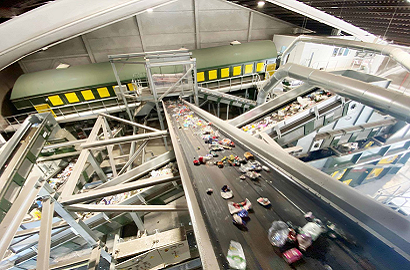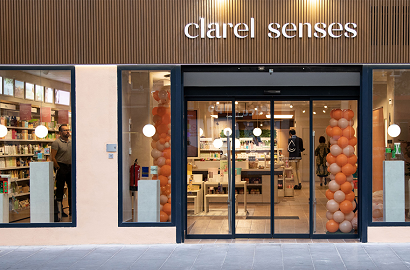Stadler Installs Waste Sorting Plant in Guadalajara

Serving 22 municipalities and with a capacity of more than 100,000 tonnes per year
Stadler has completed the installation of a municipal solid waste (MSW) and packaging sorting plant in Guadalajara. The new infrastructure is located at the Torija Waste Treatment Centre, which is part of the Urban Waste Management Consortium in the province of Guadalajara. It completes a facility that also includes a composting plant, a leachate treatment plant and a landfill.
The Torija centre receives waste directly from transfer stations in 22 municipalities. The challenge for Stadler Selecciona, a subsidiary of the German company Stadler Anlagenbau, was to integrate its sorting plant into an existing building and to manage the dismantling of the plant it was to replace. The new plant also had to be prepared to handle light packaging in addition to municipal waste.
High technical level
Stadler’s technical expertise and project management experience played an important role in the decision to award the contract to Tragsa. Antonio Marzal, Managing Director of the Guadalajara public company, explained, “The visit to Stadler’s headquarters in Altshausen (Germany) was a turning point for us and gave us a great deal of confidence during the manufacturing process, as we were able to observe first-hand the high technical level of the facilities, the level of the staff and the quality of the products. This gave us even more confidence in the installation we needed to carry out.”
One of the reasons for replacing the old plant was the need to automate the process in order to increase capacity and improve recovery rates. The sorting plant installed by Stadler responds to this approach, with a capacity of forty tonnes per hour for municipal waste and four tonnes per hour for light packaging.
Process automation
A first separator separates household waste, mixed commercial waste and bulky waste. Next, three optical sorters sort up to four types of packaging, and two more sort iron and aluminium. The recovered materials are stored and packaged for sale. As envisaged in the tender for the work, the automation of the process has increased the plant’s capacity to over 100,000 tonnes of municipal solid waste and 12,000 tonnes of light packaging per year.
All of this was achieved within a very tight timeframe, which was also a key requirement of the tender. Dismantling of the old installation took three weeks, followed by a further ten weeks to assemble the new one, which was commissioned on 30 April. As Marzal recalled, “It was very important that the plant was commissioned on a specific date, and Stadler achieved this”.
Stadler’s International Sales Manager, Carlos Manchado Atienza, expressed his company’s satisfaction, “The excellent work of our engineers enabled a perfect installation at the existing building. In addition, excellent communication with the various suppliers involved was essential in meeting deadlines and all project requirements.”
Photo: Stadler




